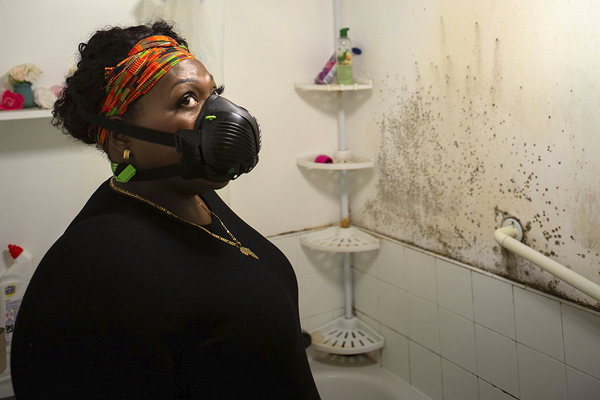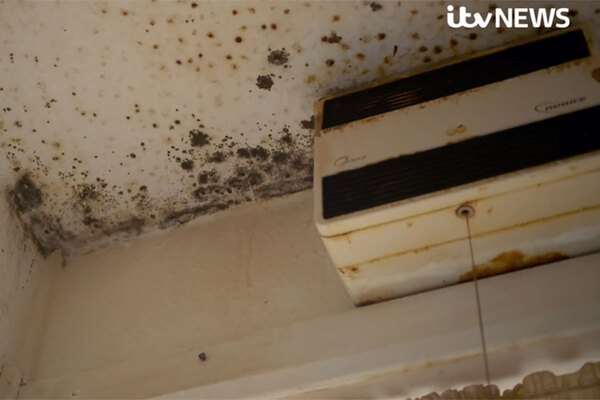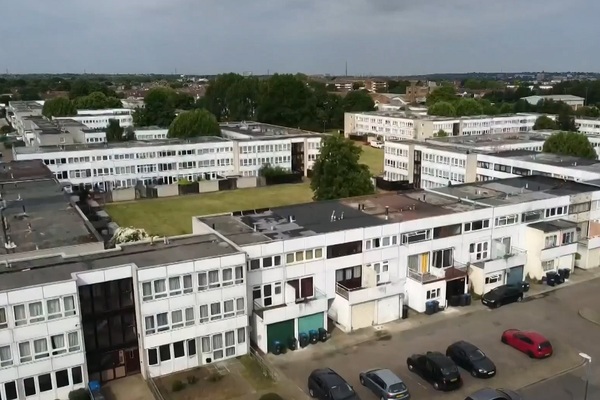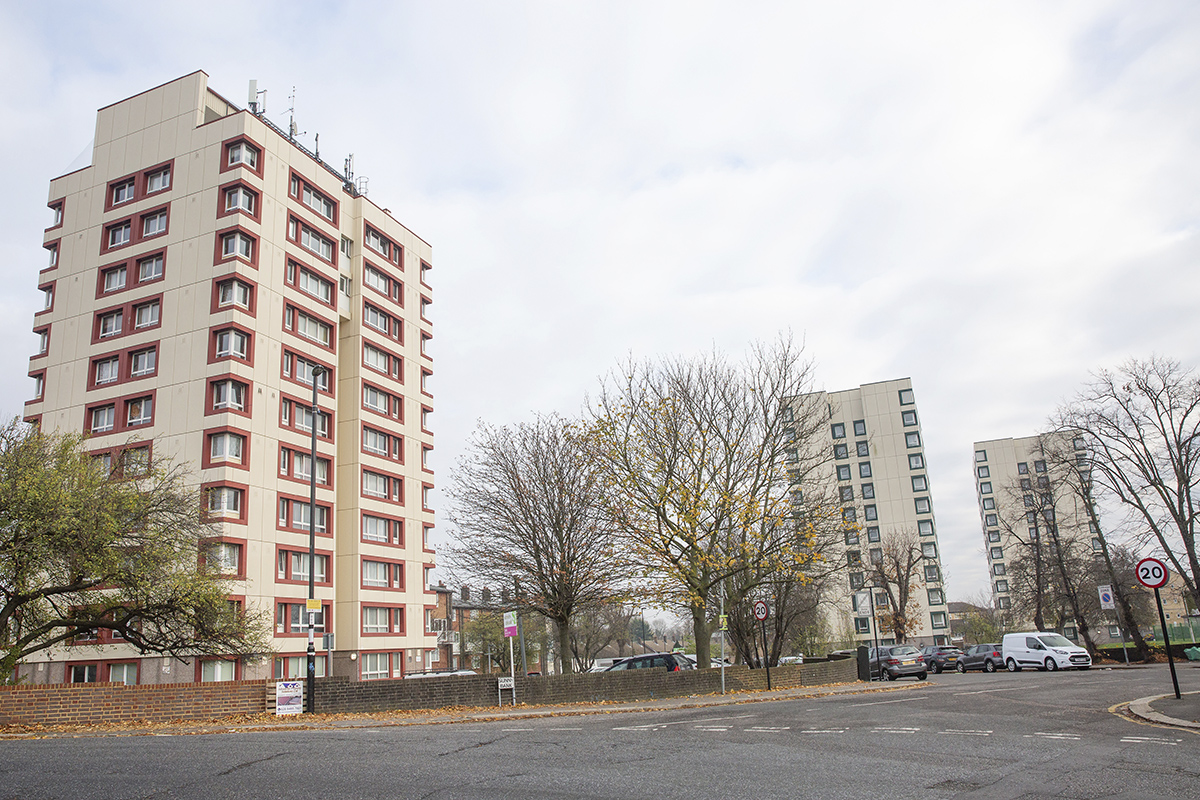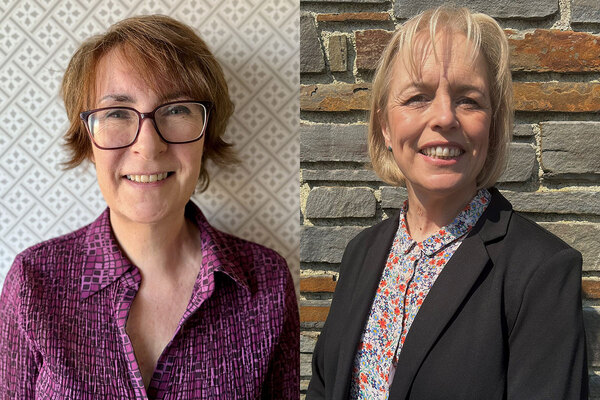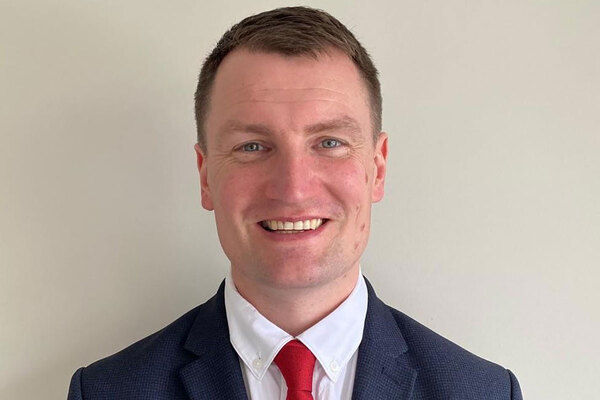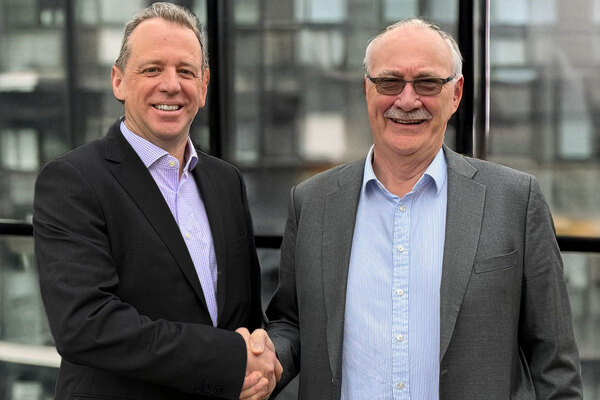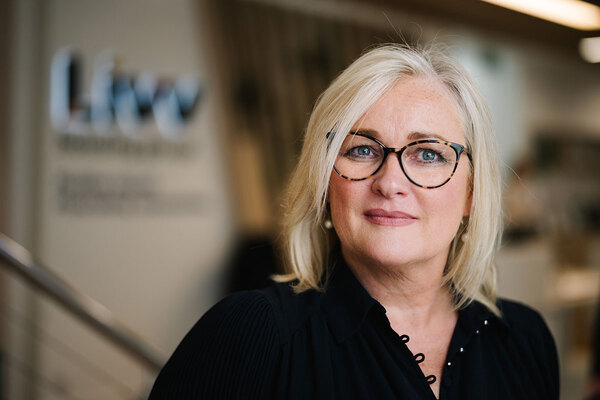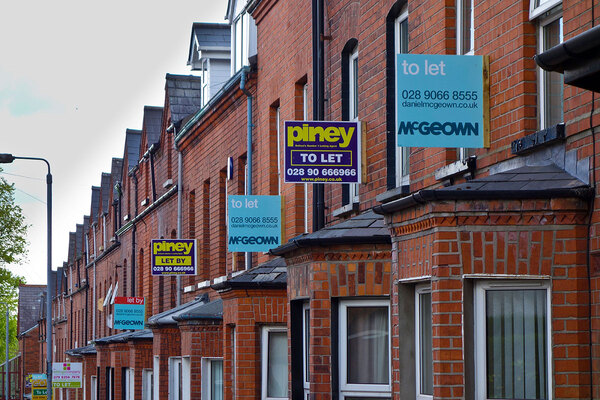‘We’re not stopping’: an interview with the ITV journalist exposing poor housing conditions
Over the past eight months, Daniel Hewitt and a small team at ITV News have been investigating social housing conditions across England. What they have found has often been shocking. Grainne Cuffe asks him what he has learned and where the investigation is going next. Photography by Sam Mellish
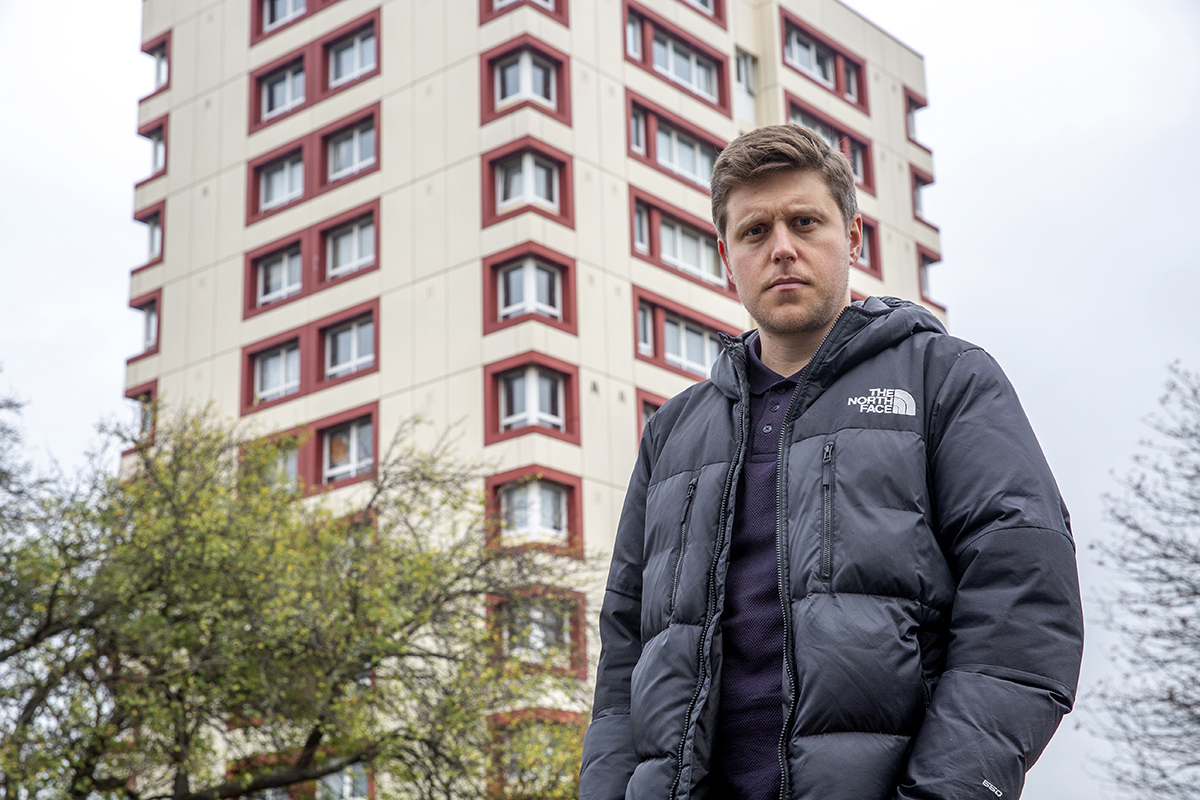
“It was like a house of horrors.” ITV News journalist Daniel Hewitt stands outside a block in South Norwood, south London, with Inside Housing on a bleak morning. Thanks to his work, we know that conditions inside the building are even less hospitable.
This block on Regina Road, owned and run by Croydon Council, is where an investigation that has brought shame on the sector started for Mr Hewitt.
One of the tenants he met on his first visit to the estate was Fransoy Hewitt. Footage of her flat revealed the appalling conditions that she and her two sons were living in: walls covered in thick black mould and damp so bad the carpet squelched under her feet. Water leaked from lights and into sockets, leading her to unplug her fridge to avoid electrocution. Ms Hewitt had been complaining to the council for 18 months.
Her flat was not the only one. Many residents in the block and in another across the road had repeatedly complained to the council about the state of their homes. He might not have known it at the time, but for Mr Hewitt and his colleagues, that first report was the start of an odyssey that would go on to highlight cases of poor social housing conditions across England.
Rightly, this is the story that everyone who lives and works in social housing has been talking about this year. Inside Housing meets with Mr Hewitt to find out what lessons he thinks needs to be learned, what he thinks of the response so far and where he plans to take the investigation next.
Opening an investigation
Early on during the interview, Mr Hewitt asks that the rest of the ITV team – Sophie Alexander, Imogen Barrer, Sarah O’Connell – are mentioned. “The idea that I’ve done this by myself is ludicrous,” he says, later adding that ITV management “deserve an enormous amount of credit” for committing resources to the investigation.
For Mr Hewitt and the ITV News team, the investigation began to take shape at the end of 2020, when he made a pitch to his boss about doing more stories on housing. It was an idea that had been eating away at him since an investigation into child poverty in the North West in 2017 revealed that the conditions of people’s homes were often poor.
“We hadn’t really focused on that element [housing conditions] of it… even though it was clearly a massive problem for families. Often it was the thing that was making them most frustrated, or ill, or angry, and yet
we never really talked about it,” Mr Hewitt explains.
The pitch was successful. Ms O’Connell, Mr Hewitt’s producer at the time, said he should follow up on an older story ITV had covered in Croydon, south London, on housing problems. The tenant involved suggested he go to Regina Road.
After taking photos, we move to a cafe near the estate. Over a tea, Mr Hewitt reveals how he felt when he saw Ms Hewitt’s flat. “It was the most angry I’ve ever been as a journalist, as a human being,” he states.
“Walking into that flat and seeing not just appalling, squalid conditions, but the fact that it was quite obviously dangerous and Fransoy was living there with her two little boys.”
“It was the most angry I’ve ever been as a journalist, as a human being”
It was the smell and the cold of Ms Hewitt’s home which Mr Hewitt says have stuck with him – as well as knowing that repairs teams had been round and she had called the council over and over again.
“I remember thinking that I couldn’t live in this for a day, never mind for months and months and months,” Mr Hewitt adds.
After being exposed, Croydon Council apologised and moved Ms Hewitt – she was offered a new permanent home a week later. The council launched an independent inquiry and, in May, a damning report concluded that Croydon and its repairs services contractor Axis had “failed to deliver even basic ‘core’ housing services”, while there was a “poor operating culture with a lack of care and respect for tenants”.
After the report, ITV was flooded with emails from people across the country living in similar conditions; their mental and physical health often severely affected.
“If you could bottle the dignity and resilience of the people we’ve spoken to and sell it, you’d make a lot of money, because they have to put up with so much more than most people,” Mr Hewitt says. “Everything about their lives starts to crumble and fall apart. How can a child go to school and do well educationally when their home is riddled with damp and is wet and leaking?”
“Families have had their lives completely destroyed by this,” he adds.
Mr Hewitt found throughout his investigation that residents felt they were looked down on, not listened to and not respected. Some believed they were treated worse or ignored because of their ethnicity.
“If you could bottle the dignity and resilience of the people we’ve spoken to and sell it, you’d make a lot of money, because they have to put up with so much more than most people”
Another part of his investigation, published last month, revealed that racism is “rife” at an unnamed London council, with a whistleblower saying that housing department managers were making racially motivated judgements about tenants, were dismissive of their complaints and blamed them for the problems.
This followed an Inside Housing story into how race affects housing conditions, which found that white residents are less likely to be living in a damp home.
What is Mr Hewitt’s opinion about how councils and housing associations have responded to his stories? Although he does give one example of a positive response – Bromford – he says that most responded in broadly similar ways: apologising but “defensively” claiming the cases were “isolated”.
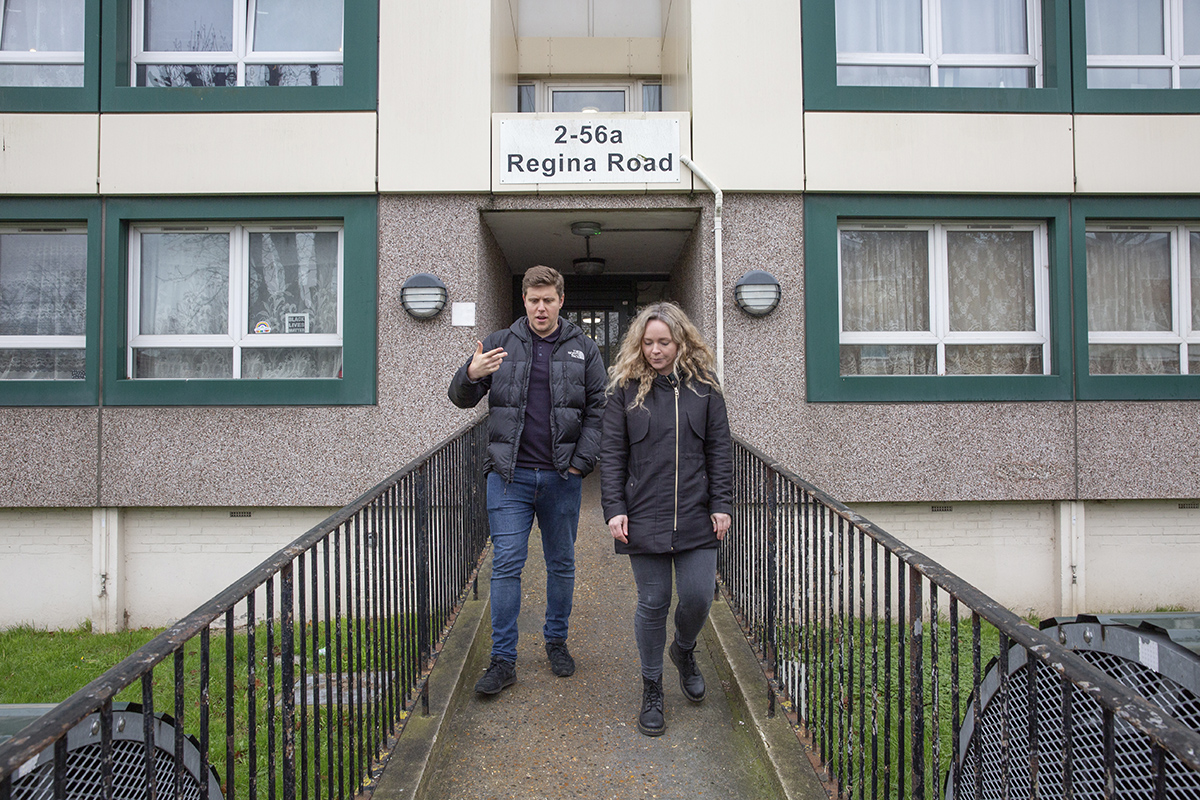
“It’s almost trying to paint them as if they’re the problem, rather than actually saying ‘we’ve got a problem that we need to solve at our organisation’.
“Hundreds of people were contacting us from housing associations and councils across the country every single week, leading to thousands.
“During our investigation, we could have run a piece every single night on this,” he explains.
He says one common response has been asking why ITV is not focusing on private landlords, which are allegedly “worse”.
The answer? People “expect better of social housing”, says Mr Hewitt. “If people in the social housing sector are treating tenants like that… they just lose all hope that anyone is ever going to treat them well.
“And because people often don’t have anywhere else to go, when they complain there’s a sense of ‘what’s the urgency, they’re not going to leave’. Whether it’s unconsciously, there is potentially this culture that’s seeped in of ‘we don’t need to rush this’ – and that’s a really dangerous conclusion to come to.”
“If people in the social housing sector are treating tenants like that… they just lose all hope that anyone is ever going to treat them well”
Does Mr Hewitt believe social landlords have lost sight of their core purpose? He says he is no expert.
“What I would say is that it’s quite clear that there’s a pattern of treating tenants like the problems that they’re living with are their own fault.
“And there’s a culture of not actually listening to what they’re saying. There is a culture of not taking their complaints seriously,” he says.
He adds that a big part of the problem is poor record-keeping. “The amount of people I’ve spoken to who said they rang up seven or eight times about this and every single time they’ve had to explain the problem again.
Do you know how frustrating that is?”
There is also a feeling of “us and them” among tenants, he states. When interviewed by Mr Hewitt for his investigation, then-housing secretary Robert Jenrick suggested that pay at some housing associations was “out of control”.
Mr Hewitt is reticent to give his personal opinion on pay. However, referring to Clarion chief executive Clare Miller being given a £50,000 bonus this year, he says this has led to some tenants feeling that there is a disconnect between what is happening on the ground and in the boardroom. Clarion’s Eastfields Estate in Mitcham, south London, was the subject of one of ITV’s exposés.
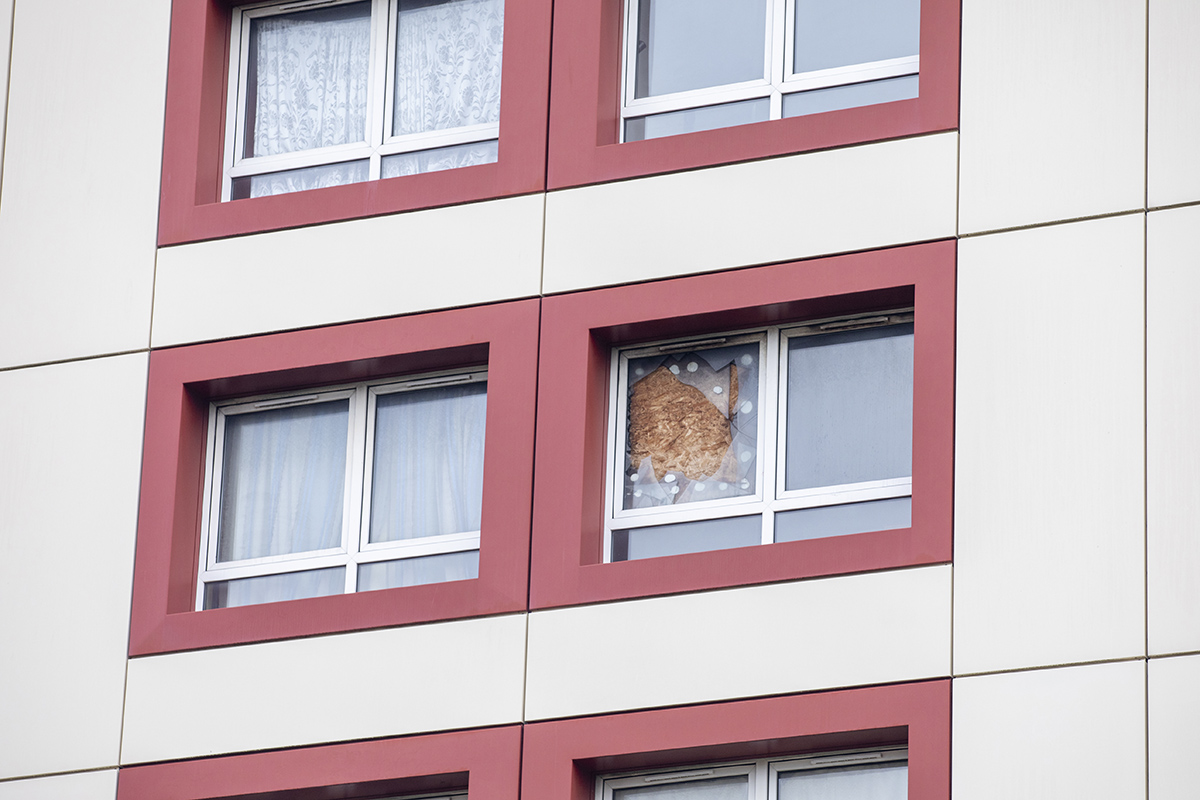
In terms of the wider learning that should be taken from his investigation, Mr Hewitt says the blame does not lie solely with social landlords. There is not enough social housing, the quality of stock is poor and some demolition will be necessary, he states.
Local authority funding has been slashed over the past decade, although when Mr Hewitt questioned Mr Jenrick about that, he said the poor conditions have “nothing to do” with cuts and were instead caused by “a lack of compassion and poor management in a small number of councils and housing associations”.
What did Mr Hewitt think of that? “I wasn’t surprised, but if you looked at the past decade and suggest that austerity to the council budget had nothing to do with council performance in housing, it’s stretching reality
to the nth degree,” he says.
Regardless of what led to it, disrepair is a significant problem facing social landlords today. Following ITV’s coverage, the Housing Ombudsman launched an investigation into damp and mould. The subsequent report accused social landlords of creating a “culture of blame” for tenants living in squalid conditions and urged them to take a zero-tolerance approach to the problem.
“We plan to continue to shine a light on the treatment of tenants and the conditions they are living in, and keep questioning what is being done about it”
What did Mr Hewitt think of the findings?
“I was surprised by how blunt it was… He [housing ombudsman Richard Blakeway] actually said we’ve
got a problem and we need to sort it out.
“But why has it taken our investigation for the ombudsman to come out and say that publicly?” This is frustrating given there has been a “systemic failure across the whole sector”.
What does Mr Hewitt think the solution is? For starters, a national body that represents social tenants is urgently needed, he argues. “If there was a national body funded by the state that meant that when these problems occurred, the alarm would have been raised, I don’t think we would be sat here having this conversation.”
This, of course, is something Inside Housing, along with other organisations, such as housing charity Shelter, have long been calling for. To date, there has been little sign of action from the government.
Mr Hewitt says focus on the sector needs to stay at the forefront in the national media, while progress on implementing the Social Housing White Paper needs to speed up. “The government talks a very good game about learning the lessons of Grenfell and our investigation. But where is the action? It would be hard not to draw the conclusion that it’s not a priority.”
And what about the future of the investigation? The answer will not come as a surprise: “We’re not stopping. We plan to continue to shine a light on the treatment of tenants and the conditions they are living in, and keep questioning what is being done about it.”
Sign up for our Week in Housing newsletter
Already have an account? Click here to manage your newsletters
